Karankawa Carancahua Carancagua Karankaway
A collaboration between Nuria Montiel and John Pluecker for an installation at Project Row Houses during Round 44: Shattering the Concrete: Artists, Activists and Instigators, curated by Raquel De Anda in spring 2016.
A collaborative visual and sound poem that meditates on language and memory in the context of colonial structures of power that attempt to erase one of the indigenous cultures that inhabited Southeast Texas: the Karankawa. The project first emerged out of an investigation into the archival documentation of the Karankawa language assembled by colonial settlers, explorers and scholars in Southeast Texas; this investigation found a poetic form in Pluecker's book Ford Over. The dominant historical narrative in Texas contends that the Karankawa people were driven to extinction; however, through research and conversations, it became clear that members of the Texas Carrizo-Comecrudo tribe along with other Native Texans refute these accounts as they reclaim their own Karankawa ancestors, sometimes grounding themselves in the stories and lifeways of their own families. Through this sound and visual poem (with audio work by Lucas Gorham, a sound artist and musician of Karankawa descent), we are asking: can languages be completely lost or might they survive in ways both perceptible and imperceptible? How might they be heard?
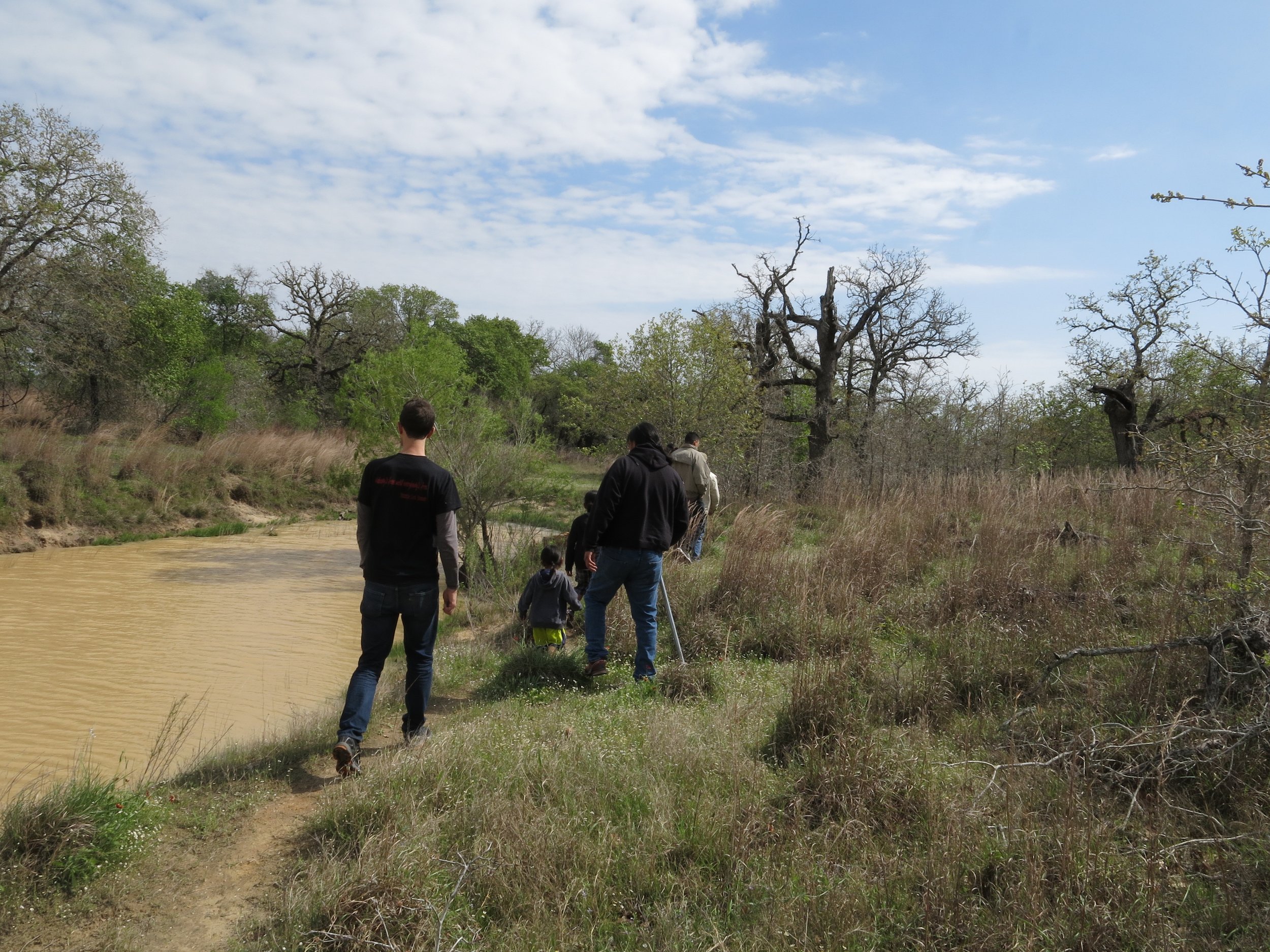
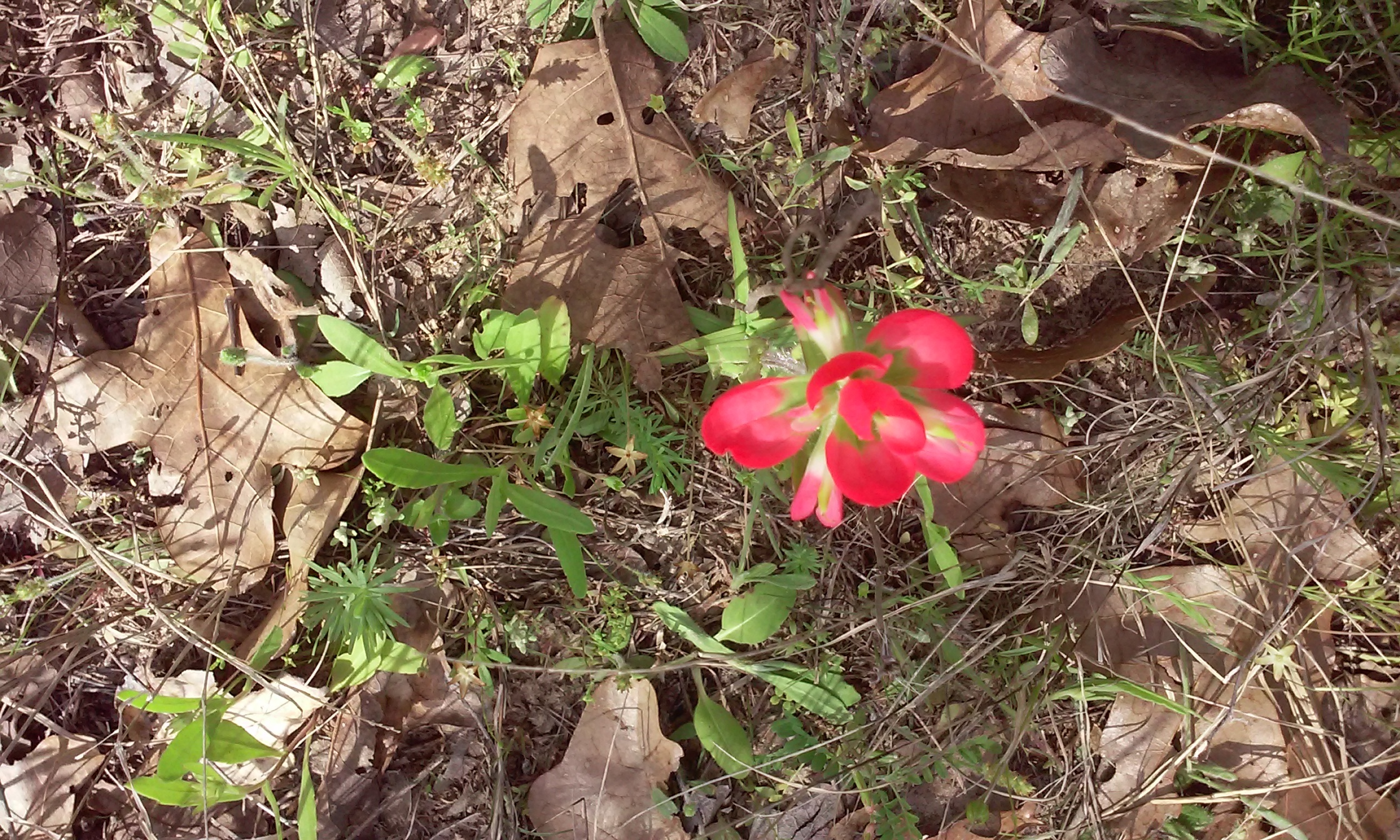

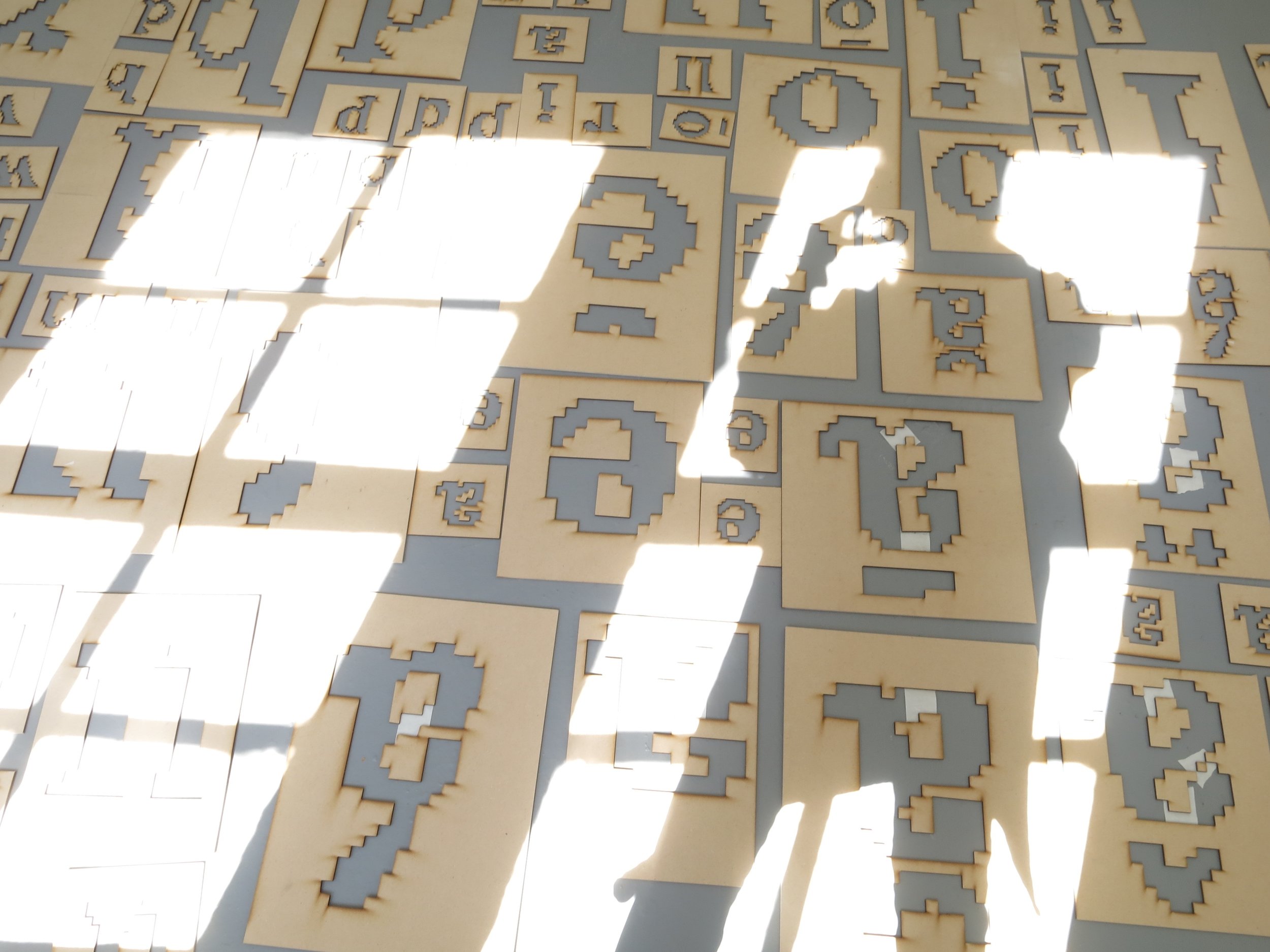

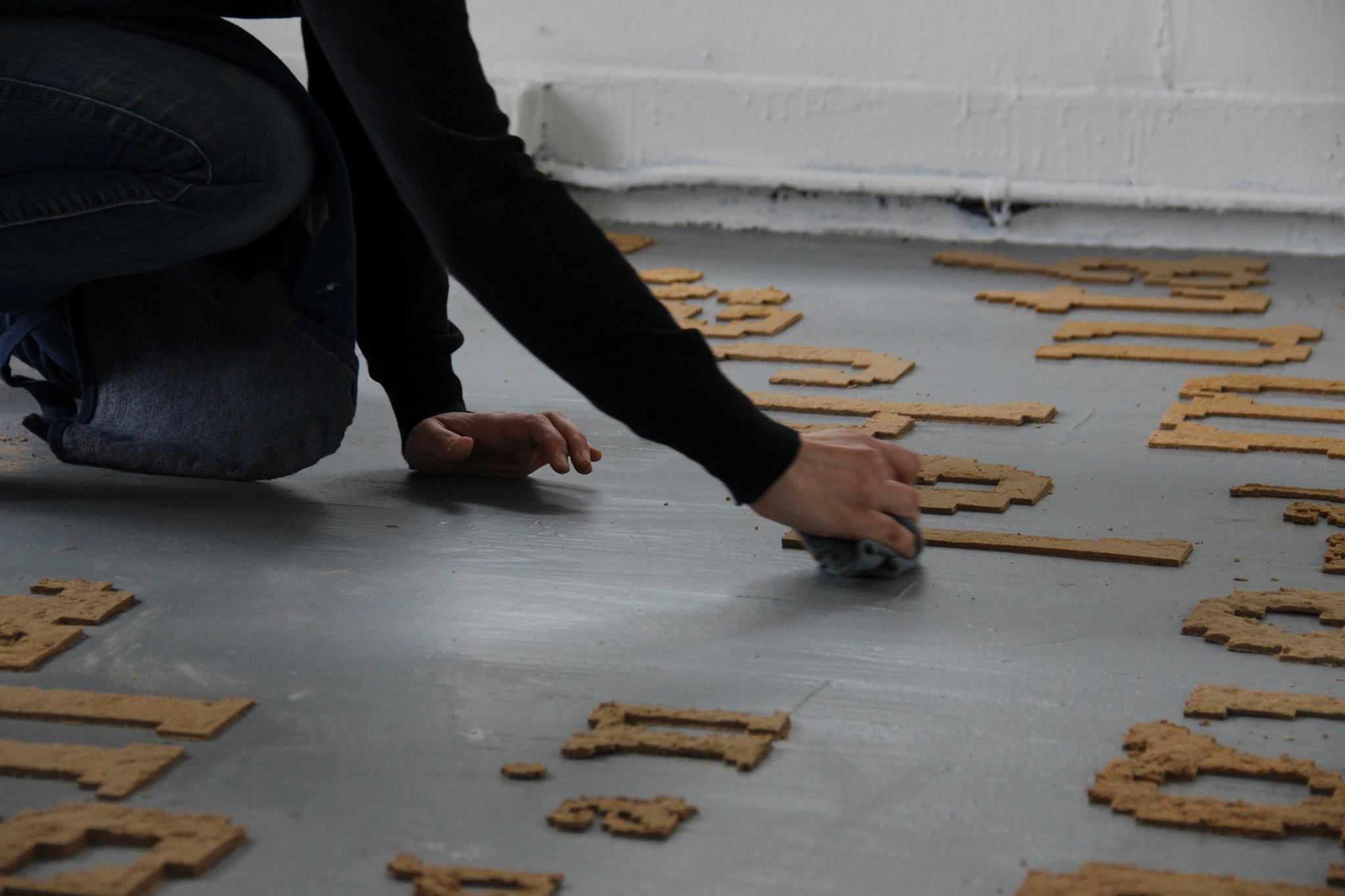





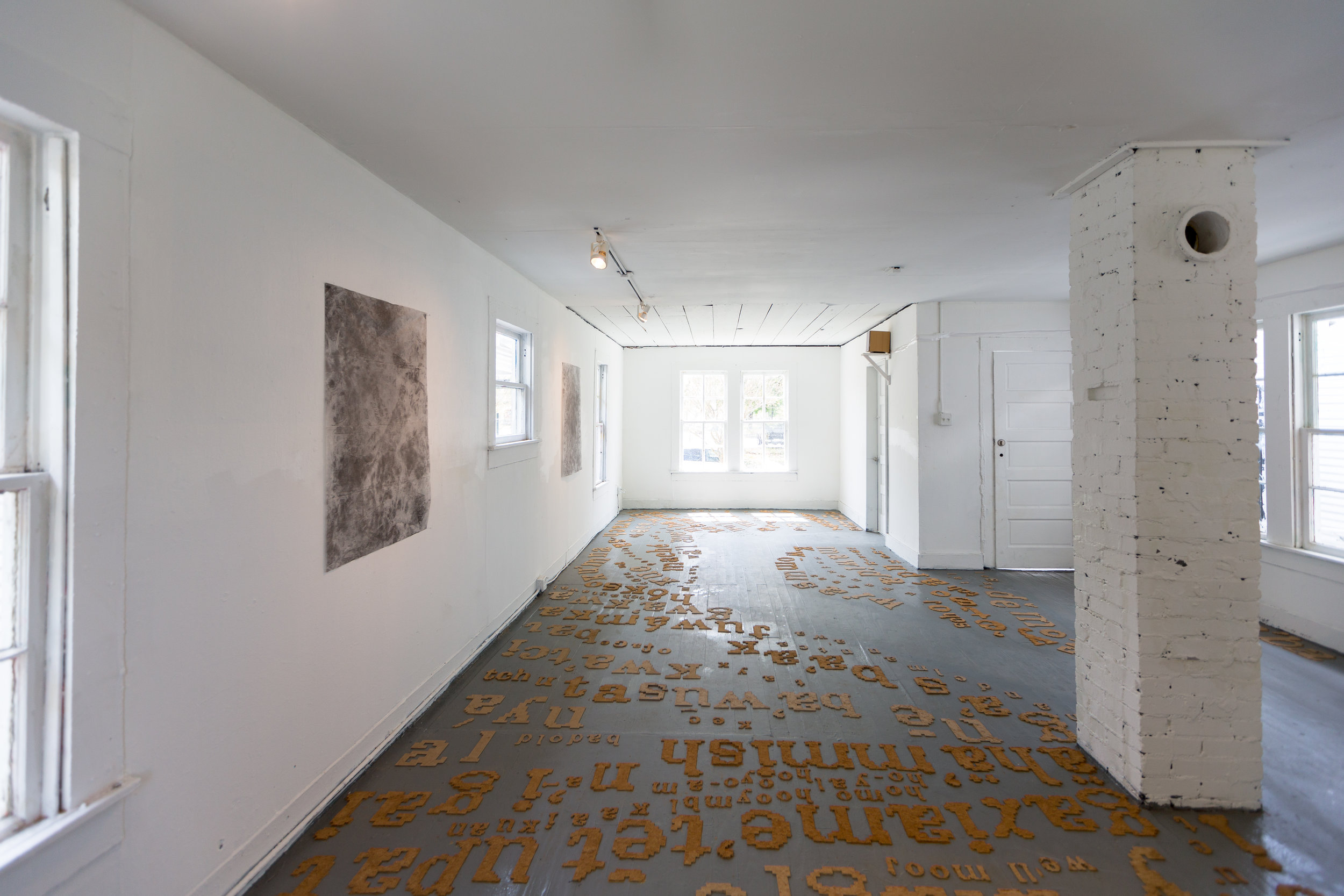
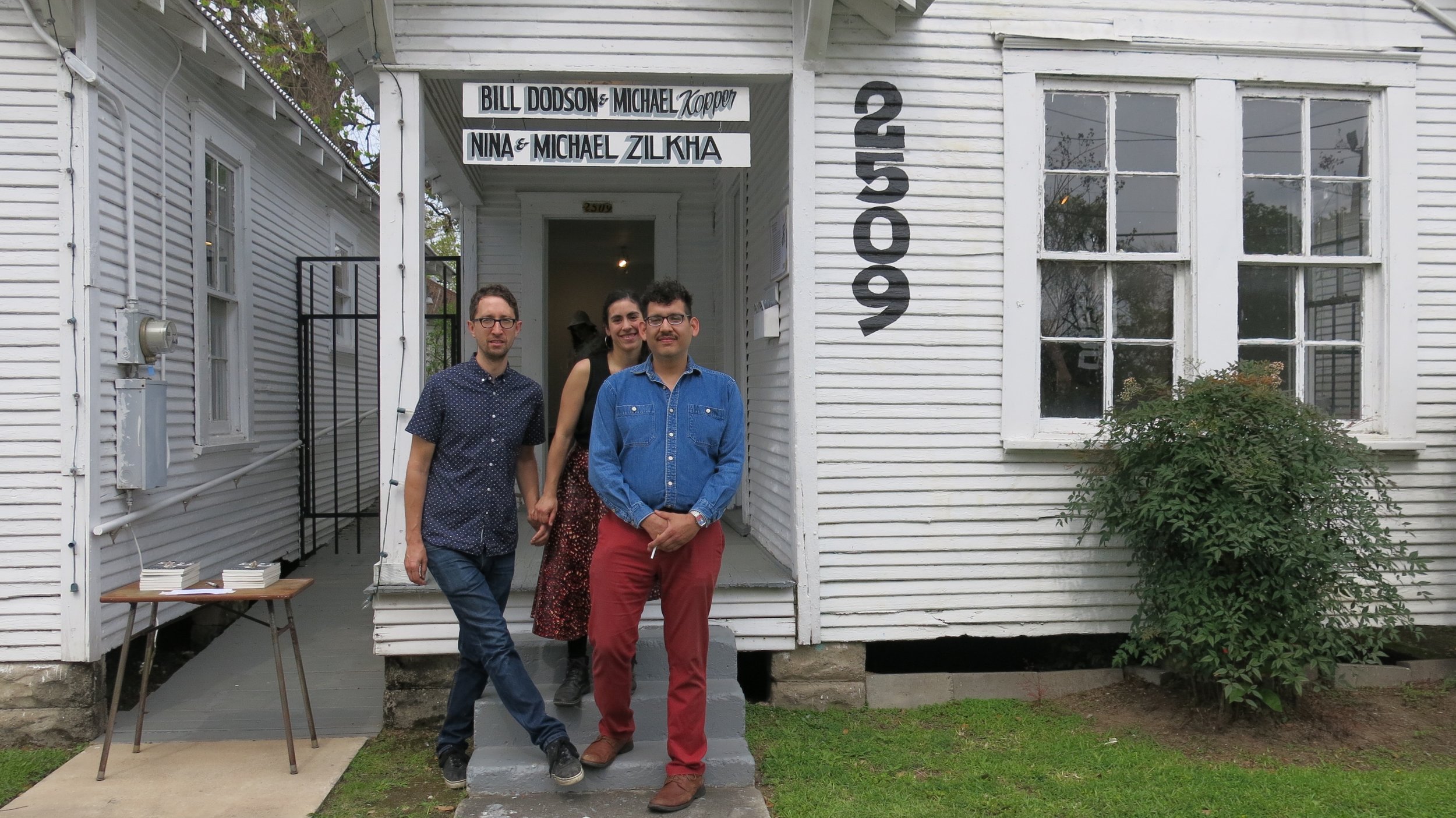
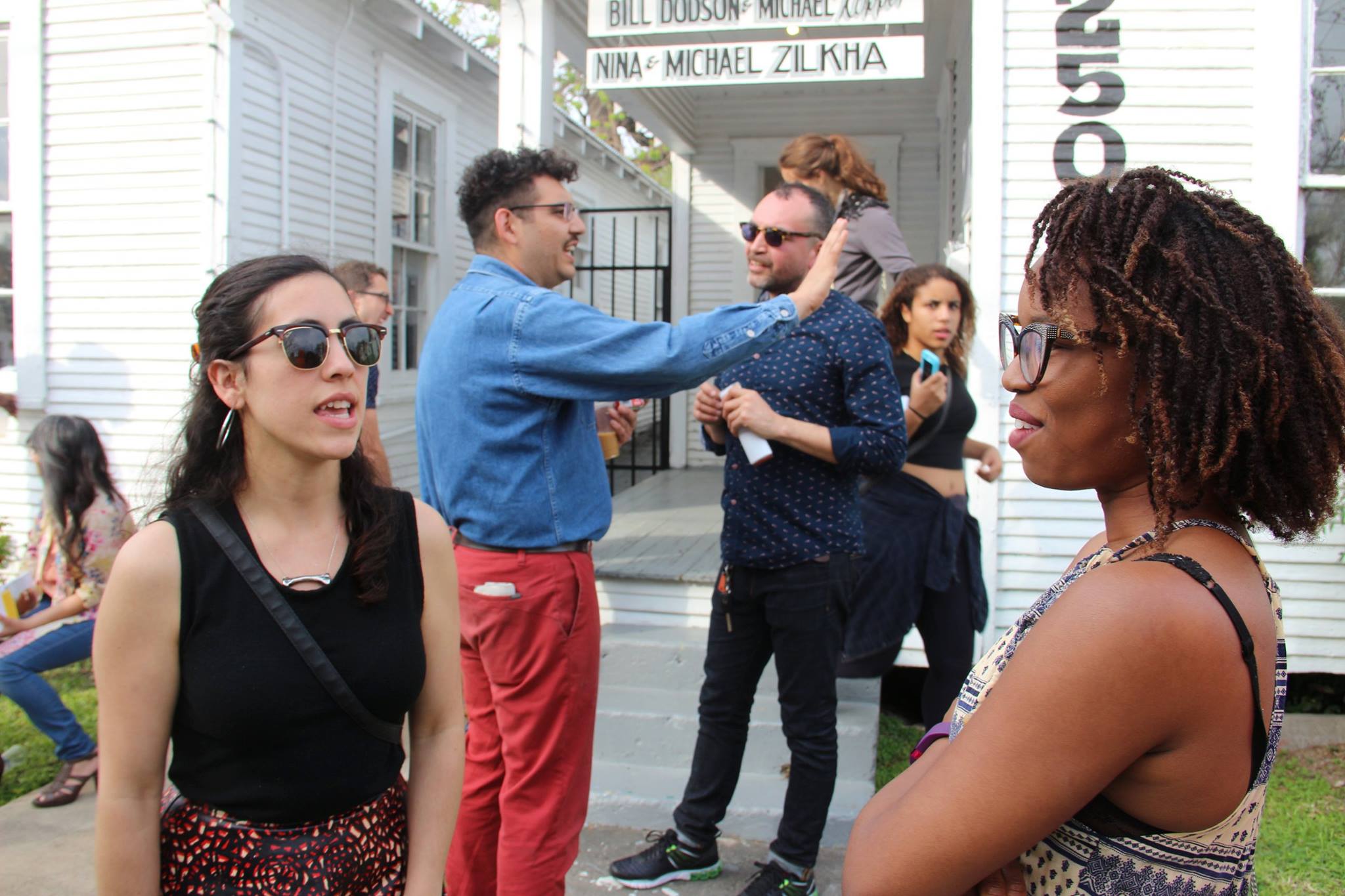

"Montiel and Pluecker’s installation is based in an ongoing activism and community engagement, but the exhibition itself makes use of visual language–both literally and figuratively. In delicate floor reliefs made of dirt, the two reproduce words from the Karankawa language. A First Peoples nation native to the Houston area, the speakers of this language and the language itself have been almost entirely erased from Texas history. The installation (which also includes a sound piece), then, is a reclamation, but also a statement of the many intangible points of disconnection that eventually undermine both personal and collective memory-making. As the installation succumbs to the elements and is bumped by visitors, it starts to dissemble and fragment. In fact, its dissolution is part of the piece’s power."
- Laura Wellen in an insightful review of the installation at Arts + Culture Texas
I wrote an essay—”Karankawa Carancahua Carancagua Karankaway: Centering Indigenous Presence in Southeast Texas”—that attempts to discuss the process of creation of the work, the series of decisions Nuria and I made and conversations we had, particularly with Indigenous folks in Southeast Texas. The essay was published in 2019 in the book Geopoetics in Practice, edited By Eric Magrane, Linda Russo, Sarah de Leeuw, and Craig Santos Perez. From the book description":
“This breakthrough book examines dynamic intersections of poetics and geography. Gathering the essays of an international cohort whose work converges at the crossroads of poetics and the material world, Geopoetics in Practice offers insights into poetry, place, ecology, and writing the world through a critical-creative geographic lens.
This collection approaches geopoetics as a practice by bringing together contemporary geographers, poets, and artists who contribute their research, methodologies, and creative writing.
